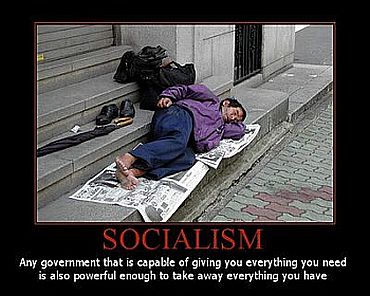
Criticisms of Senate Majority Leader Harry Reid (D-NV) for his disconnect from reality have been mounting after he declared on the Senate floor yesterday, “It’s very clear that private sector jobs have been doing just fine, it’s the public sector jobs where we’ve lost huge numbers, and that’s what this legislation is all about.”
Asked if he disagreed with Reid’s comments by MSNBC’s Joe Scarborough this morning, former Obama administration economic advisor Austan Goolsbee said, “I guess I would disagree a little.”
Examining Reid’s comments in an editorial, The Wall Street Journal writes, “[I]t’s hard to see what Mr. Reid could possibly mean when he says it is ‘doing just fine.’ Private nonfarm employers added only 137,000 new jobs in September and 352,000 in the last three months. That’s why the overall jobless rate remains an unprecedented 9.1% two years into an ostensible economic recovery. Going back to 2008, the Labor Department reported 111.822 million employed private workers at the end of 2008. The number plunged during the recession, and as of September of this year overall private employment had climbed back to 109.349 million. But that’s still some 2.5 million fewer jobs than in 2008. If this is doing fine, we’d hate to see Mr. Reid’s definition of lousy. What these numbers show is that, contrary to Mr. Reid, the real U.S. jobs problem continues to be in the private economy. If private employers were hiring at the pace they normally do in an economic recovery, we might be doing fine.”
In a floor speech this morning, Senate Republican Leader Mitch McConnell added, “For Democrats, the solution [to the jobs crisis], apparently, is to increase the number of people who work for the government. My good friend the Majority Leader made this pretty clear yesterday when he said the private sector ‘is doing just fine,’ and that the President’s latest stimulus is focused on government jobs instead. . . . [I]t’s become increasingly clear to many Americans that Democrats in Washington have lost all sense of balance when it comes to the size and the scope of the federal government in Washington.”
Indeed, as the WSJ editors point out, “Mr. Reid was trying to defend a new Democratic proposal to spend another $35 billion that the government doesn’t have to help states hire teachers and other public workers. He seems to be under the impression that private job creation is doing well, and that happy days would be here again if we could only gin up more government jobs. . . . Mr. Reid knows his proposal can’t pass the House, and perhaps not even the Senate, so his real agenda is to stage a vote that Republicans will oppose so President Obama can claim on the stump that Democrats are doing something to help create jobs and that Republicans stopped them. Instead, Mr. Reid’s comments yesterday reveal that he and his fellow Democrats inhabit an economic universe in which government is the main engine of job creation. That’s how you get a jobs crisis.”
Leader McConnell summed up the problem with Democrats’ view of the economy, saying, “I saw yesterday that the Washington, D.C. area now has the highest median income in the country — primarily because of the high salaries that so many government bureaucrats are making these days. And I have no doubt that many of these people do good work. But the point is, they’re weathering this economic downturn pretty well. Not only are they making big salaries relative to the private sector. They’re also holding onto their jobs. The unemployment rate for the country as a whole is 9.1 percent. For government workers it’s almost half that, at 4.7 percent. So with all due respect to my friends on the other side it’s the private sector that’s been begging for mercy. It’s the private sector that’s being crushed by regulators in Washington. So I don’t think the solution to this crisis is to make the federal government even bigger.”
Contrary to Democrats’ latest bill, which would raise taxes on job creators, Leader McConnell said, “When it comes to jobs, the primary role of government is to create an environment in which Americans and American businesses can grow and flourish without the heavy hand of government on their backs. We shouldn’t be making it harder for people to do business and prosper. We should be making it easier.”
Related:
Rasmussen Reports:15% Say U.S. Heading In Right Direction

0 responses so far ↓
There are no comments yet...Kick things off by filling out the form below.
Leave a Comment